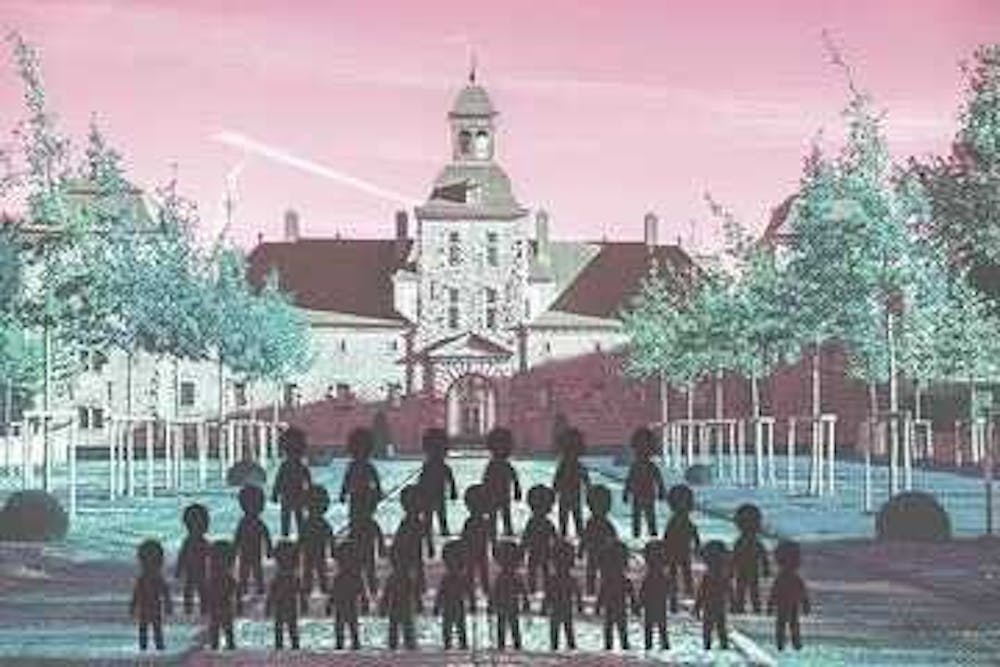The modern American university is failing our generation and damaging the country’s future.
While 82% of college graduates believe it was a “good financial investment” to obtain their degree, 61% said they wish they would’ve pursued a different major, according to a 2020 BestColleges survey. This suggests the experience of an individual has more to do with their professional future than the specific diploma they received. Most college programs, however, emphasize time spent in the classroom over experience in the real world.
Colleges have increasingly become a place where the institution is prioritized over the students and ideological diversity is lacking. Consequently, students must seek experience through internships, jobs and intellectual curiosity.
Some who share these concerns encourage abandoning college altogether, but unfortunately not everyone can achieve their professional goals without graduating. This leaves many of us looking to college as a necessity.
With both the shortcomings and importance of college in mind, we should seek to grow ourselves where the university fails us. We must support a system in the long run where students receive the knowledge their careers will require.
A sizable portion of every undergraduate program is courses which seem narrowly related to one’s major, intended to create well-rounded students. But let’s face it: A finite math class and a handful of courses on the histories of various ancient cultures aren’t what’s going to get your average political science student a job on Capitol Hill.
Employers consistently say they care more about experience than education.
“Although we know education is important, we have found that there is nothing more valuable than gaining experience when striving for a successful career after university,” James Ohene-Djan, a senior lecturer at the University of London, said in a 2018 WinkBall report.
Imagine if you added up all the hours spent in the more frivolous classes and instead spent that time and energy as an intern. Universities should move closer to this practice. When they fail to do so, students would be well-served to realize the benefits of experience over education in their own minds and behave accordingly.
Some institutions, such as the Kelley School of Business, offer traditional degrees in a shorter time. Shortened programs are typically three years but could be even shorter with more emphasis on essential courses and career preparation outside college.
Christian Marshall, a sophomore studying accounting and finance, is in the business school’s accelerated program. He said he values the fact he can earn two degrees while avoiding the extremely high costs normally associated with that path.
College’s lack of ideological diversity also fails to prepare students for life after higher education. A 2018 study from the National Association of Scholars of many of the top liberal arts colleges in the country found a 10.4-to-1 ratio of registered Democrat to Republican doctorate-holding professors.
This isn’t simply a problem of preferred politics — it would be worrisome if the party affiliations were flipped, too. Extreme uniformity decreases educational quality for students across the political spectrum by giving students a false impression of who they will encounter outside of college.
As a student at the business school, Marshall said he’s been fortunate to have professors who emphasize the need for varying ideological views in a classroom or organization.
"In the business world you don't always get to choose who you work with," he said. "Being exposed to all ways of thinking in college is essential to actually prepare me for life."
The time we spend on unconstructive classes, the money sacrificed and the all-too-common ideological narrowness should make us ask, “Is all this really worth it?”
For me, the justification for giving IU my time and money isn’t because they deserve it, but because my future career and the causes I want to fight for merit the costs in the present.
But college shouldn’t simply be a burdensome necessity. It should actually fulfill its intended purpose as a place for higher learning. Classes should either make students more equipped in their chosen calling or should not be required at all.
In the absence of broader changes, each of us must do for ourselves what the university can not. I don’t think you should abandon higher education, but you shouldn’t place more faith in it than it deserves, which at the moment isn’t much.
Charlie Willis is a law and public policy major and religious studies minor. He is a member of Cru and a former member of IUSG Congress. Oddly, he maintains a community of 150-plus pet rocks with their own government.






